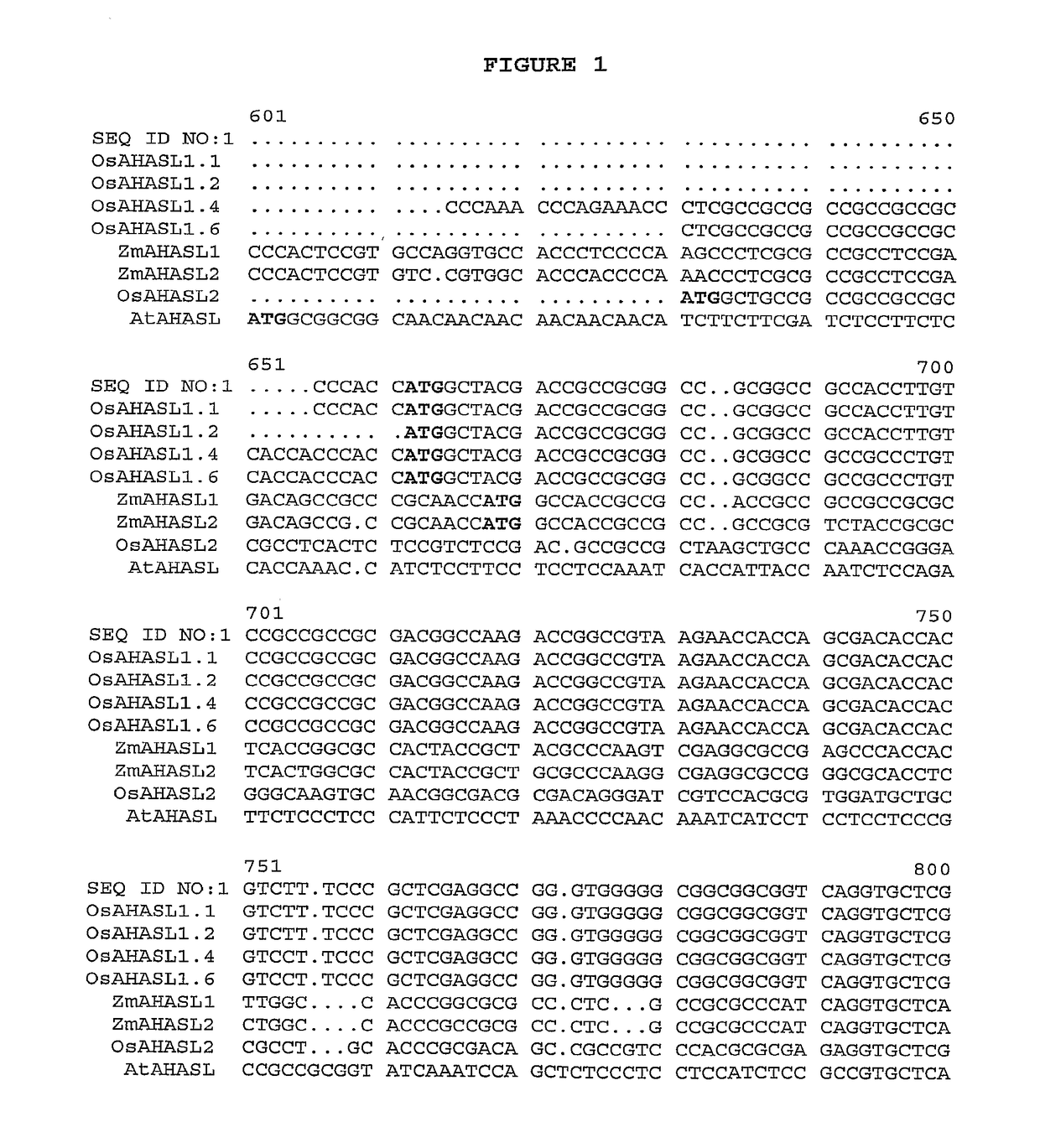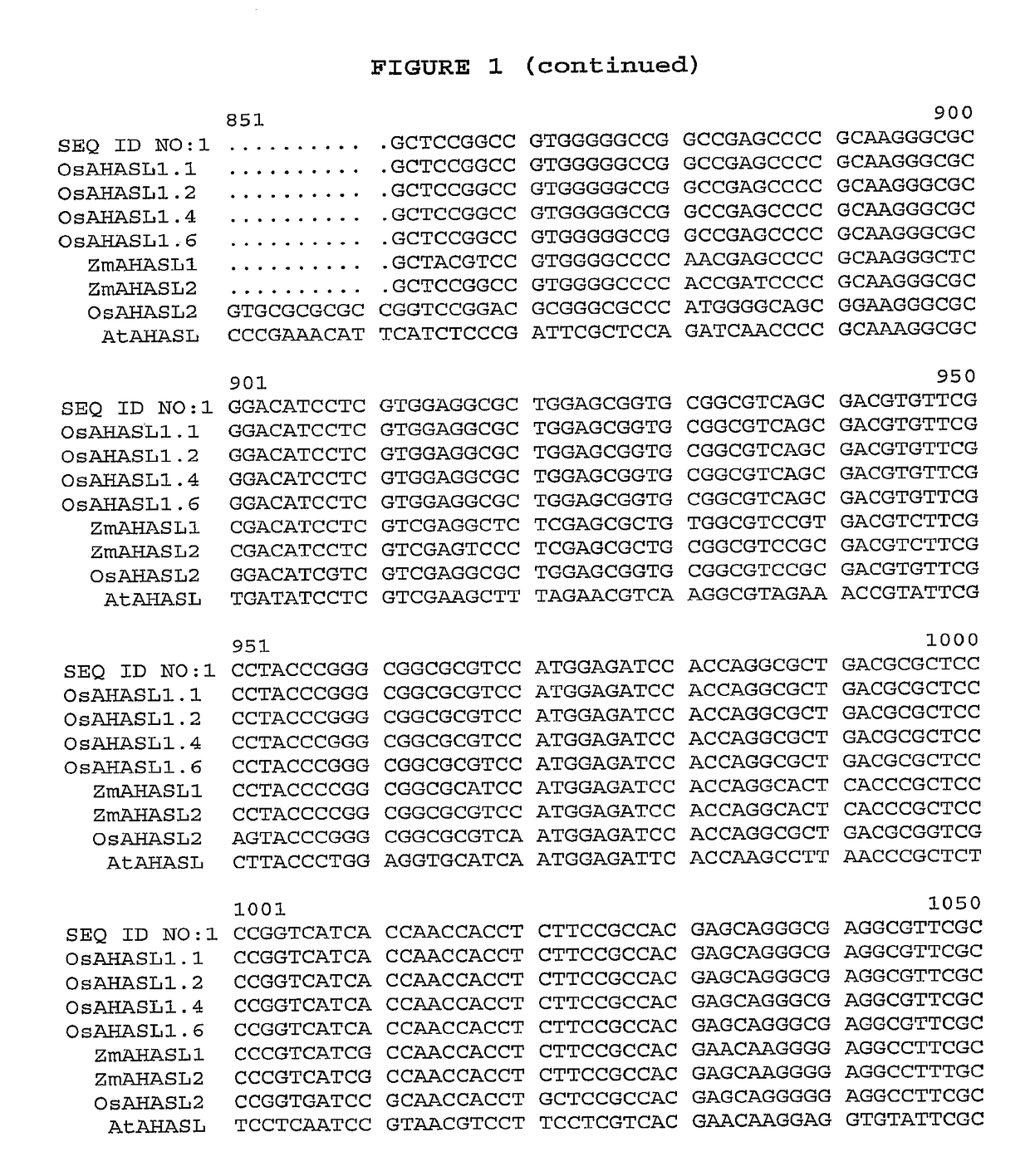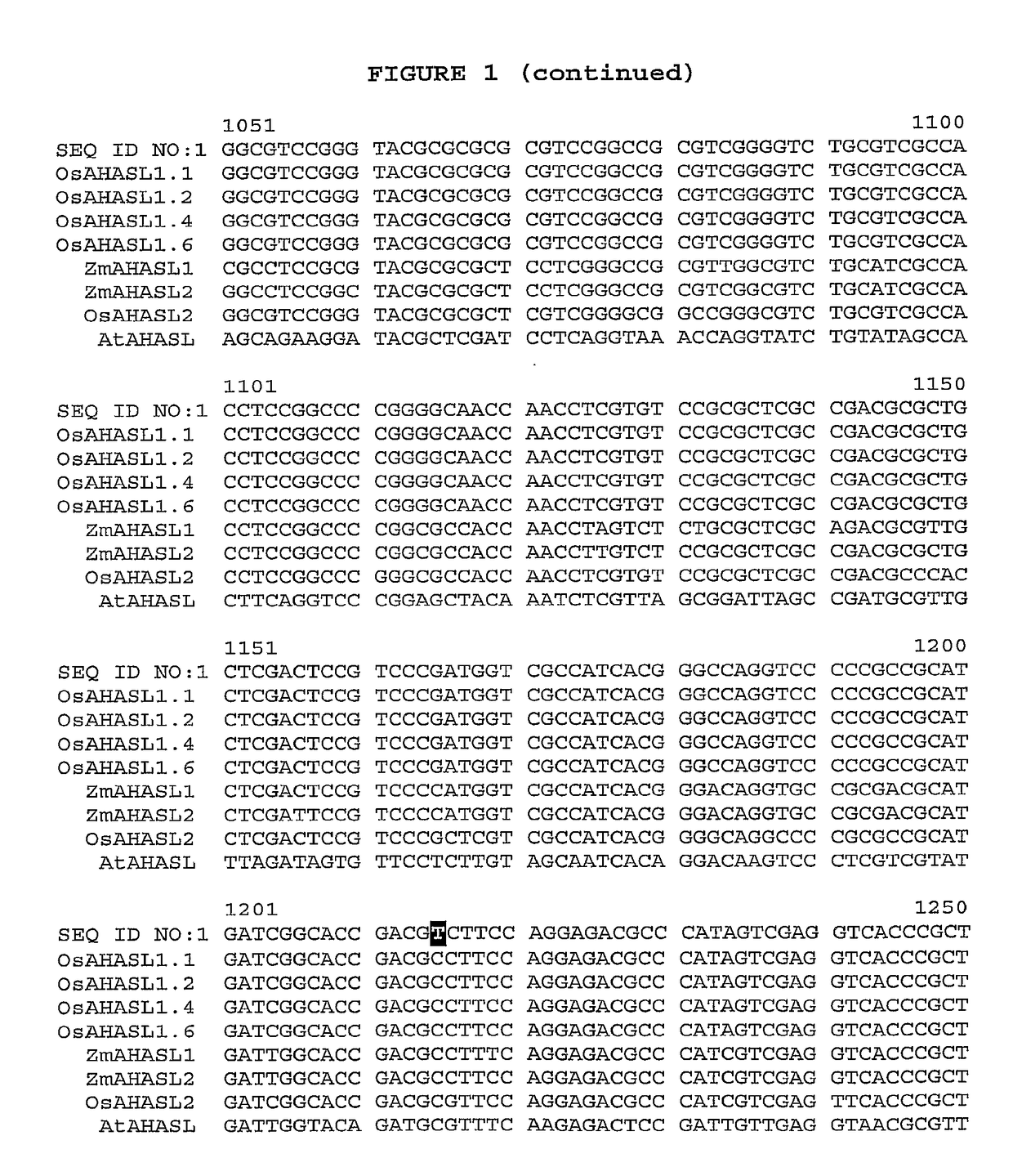Herbicide-resistant rice plants, polynucleotides encoding herbicide-resistant acetohydroxyacid synthase large subunit proteins, and methods of use
a technology of acetohydroxyacid synthase and herbicide-resistant rice, applied in the field of agricultural biotechnology, can solve the problems of difficult to control weeds in rice crops, major constraints on rice production, labor problems of transplantation, etc., and achieve the effect of increasing ahas activity in a plant and increasing ahas activity
- Summary
- Abstract
- Description
- Claims
- Application Information
AI Technical Summary
Benefits of technology
Problems solved by technology
Method used
Image
Examples
example 1
Production of an Imidazolinone-Resistant Rice Line
[0199]AHASL is a nuclear encoded enzyme and its gene, in different species, has been sequenced in its wild form and other forms showing sites of mutation that confer resistance to sulfonylurea and imidazolinone herbicides. In order to produce rice plants with herbicide-resistant AHAS enzymes, rice seeds were treated with a chemical mutagen in an attempt to induce small changes at the active site of interaction with the herbicide in order to prevent inhibition. Leading rice varieties and elite rice lines were selected in order to generate a new mutation that is resistant to the most active imidazolinones in excellent germplasm. Selection pressure was based on exposure of four-leaf stage plants to two of the most active imidazolinone herbicides applied in one application during several generations until homozygous highly resistant lines were obtained. The imidazolinone-resistance rice lines were produced as described below.
[0200]In the...
example 2
An Imidazoline-Resistant Rice Line with a Mutation in the AHASL1 Gene
[0207]Genomic DNA was separately extracted from leaves of greenhouse-grown seedlings of the IMINTA 16 line described in Example 1 above and the AHASL1 gene was amplified by a polymerase chain reaction (PCR) method using the primers described below. The resulting products of the individual PCR amplifications were sequenced using standard methods.
[0208]The primers used for PCR and sequencing are provided in Table 1. The primers were selected manually by visual inspection of the publicly known rice sequences for Oryza sativa ‘Kinmaze’, Oryza sativa japonica and Oryza sativa indica. The primers were nested approximately every 400-500 bp along the approximately 2000 bp of the AHAS gene. Several primers were designed for each 500 bp stretch to maximize the likelihood of success of amplification. No weight was given to conserved regions when choosing primers. The primer sequences were checked for hairpins and dimers via t...
example 3
Herbicide-Resistant Rice AHASL1 Proteins
[0210]The present invention discloses both the nucleotide and amino acid sequences for herbicide resistant rice AHASL1 polypeptides. Plants comprising herbicide-resistant AHASL1 polypeptides have been previously identified, and a number of conserved regions of AHASL1 polypeptides that are the sites of amino acids substitutions that confer herbicide resistance have been described. See, Devine and Eberlein (1997) “Physiological, biochemical and molecular aspects of herbicide resistance based on altered target sites”. In: Herbicide Activity: Toxicology, Biochemistry and Molecular Biology, Roe et al. (eds.), pp. 159-185, IOS Press, Amsterdam; and Devine and Shukla, (2000) Crop Protection 19:881-889.
[0211]Using the AHASL1 polynucleotide molecules of the invention and methods known to those of ordinary skill in art, one can produce additional polynucleotide molecules encoding herbicide resistant AHASL1 polypeptides having one, two, three, or more am...
PUM
 Login to View More
Login to View More Abstract
Description
Claims
Application Information
 Login to View More
Login to View More - R&D
- Intellectual Property
- Life Sciences
- Materials
- Tech Scout
- Unparalleled Data Quality
- Higher Quality Content
- 60% Fewer Hallucinations
Browse by: Latest US Patents, China's latest patents, Technical Efficacy Thesaurus, Application Domain, Technology Topic, Popular Technical Reports.
© 2025 PatSnap. All rights reserved.Legal|Privacy policy|Modern Slavery Act Transparency Statement|Sitemap|About US| Contact US: help@patsnap.com



